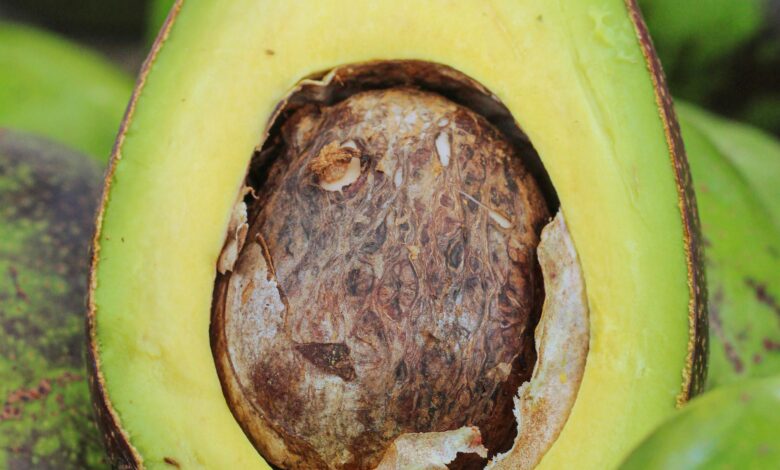The Pros and Cons of Popular Diets: Keto, Paleo, and More

In recent years, a variety of diets have gained popularity as people seek ways to improve their health, lose weight, or manage chronic conditions. Among the most well-known are the Keto Diet , Paleo Diet , Mediterranean Diet , Vegan Diet , and Intermittent Fasting . Each of these diets has its own unique approach to nutrition, but they also come with distinct advantages and disadvantages. In this article, we’ll explore the pros and cons of these popular diets to help you make an informed decision about which one might be right for you.
1. The Keto Diet
The Ketogenic (Keto) Diet is a high-fat, moderate-protein, and very low-carbohydrate diet designed to shift your body into a state of ketosis , where it burns fat for fuel instead of glucose.
Pros
- Effective Weight Loss : Many people experience rapid weight loss due to reduced carb intake and increased fat burning.
- Improved Blood Sugar Control : The diet can stabilize blood sugar levels, making it beneficial for individuals with type 2 diabetes or insulin resistance.
- Enhanced Mental Clarity : Some users report improved focus and cognitive function due to ketones being used as brain fuel.
- Reduced Hunger : High-fat foods are satiating, which can help reduce cravings and overeating.
Cons
- Difficult to Sustain : Severely limiting carbs can be challenging long-term, especially for those who enjoy bread, pasta, and fruit.
- Nutrient Deficiencies : Cutting out entire food groups (like grains and legumes) may lead to deficiencies in fiber, vitamins, and minerals.
- “Keto Flu” : Transitioning to ketosis can cause fatigue, headaches, irritability, and nausea.
- Potential Heart Risks : Consuming large amounts of saturated fats may increase cholesterol levels and heart disease risk in some individuals.
2. The Paleo Diet
The Paleo Diet focuses on eating foods that our ancestors would have consumed during the Paleolithic era, such as lean meats, fish, fruits, vegetables, nuts, and seeds, while avoiding processed foods, grains, dairy, and legumes.
Pros
- Whole Foods Focus : Encourages consumption of nutrient-dense, unprocessed foods, which can improve overall health.
- Weight Loss : Eliminating processed foods and refined sugars often leads to weight loss.
- Anti-Inflammatory Benefits : Emphasis on fresh produce and healthy fats can reduce inflammation.
- Improved Digestion : Higher intake of fiber-rich fruits and vegetables supports gut health.
Cons
- Restrictive Nature : Excluding entire food groups like grains, dairy, and legumes can make meal planning difficult and limit variety.
- Costly : High-quality meats, organic produce, and specialty items can be expensive.
- Lack of Scientific Support : Limited evidence exists to prove its superiority over other balanced diets.
- Social Challenges : Dining out or attending social events may be inconvenient due to dietary restrictions.
3. The Mediterranean Diet
The Mediterranean Diet emphasizes plant-based foods, healthy fats (like olive oil), whole grains, fish, and moderate wine consumption, inspired by traditional eating patterns in countries bordering the Mediterranean Sea.
Pros
- Heart Health : Rich in omega-3 fatty acids, antioxidants, and monounsaturated fats, this diet reduces the risk of cardiovascular diseases.
- Balanced Nutrition : Includes all major food groups, ensuring adequate intake of essential nutrients.
- Sustainable Long-Term : Its flexibility makes it easier to maintain compared to more restrictive diets.
- Supports Brain Health : Linked to a lower risk of Alzheimer’s disease and cognitive decline.
Cons
- Moderate Weight Loss : While effective for general health, it may not lead to rapid weight loss for those seeking dramatic results.
- Alcohol Consumption : Moderate wine drinking is encouraged, which may not suit everyone.
- Higher Calorie Intake : Depending on portion sizes, some individuals may consume too many calories.
4. The Vegan Diet
The Vegan Diet excludes all animal products, including meat, dairy, eggs, and honey, focusing instead on plant-based foods like fruits, vegetables, grains, legumes, nuts, and seeds.
Pros
- Ethical and Environmental Benefits : Reduces harm to animals and minimizes environmental impact.
- Rich in Nutrients : High in fiber, vitamins, minerals, and antioxidants from plant foods.
- Weight Management : Often leads to weight loss due to lower calorie density and higher fiber content.
- Health Benefits : Associated with reduced risks of heart disease, hypertension, type 2 diabetes, and certain cancers.
Cons
- Nutrient Deficiencies : Risk of lacking vitamin B12, iron, calcium, omega-3s, and protein without careful planning.
- Social Challenges : Can be isolating in settings where vegan options are limited.
- Processed Vegan Foods : Not all vegan products are healthy; some are highly processed and sugary.
- Requires Planning : Requires knowledge of nutrition to ensure balanced meals.
5. Intermittent Fasting
Intermittent Fasting (IF) isn’t a specific diet but rather an eating pattern that cycles between periods of fasting and eating. Common methods include the 16/8 method (fasting for 16 hours and eating within an 8-hour window) and the 5:2 method (eating normally five days a week and restricting calories two days).
Pros
- Flexibility : Doesn’t restrict specific foods, just when you eat them.
- Weight Loss : Helps reduce calorie intake and promotes fat burning during fasting periods.
- Improved Insulin Sensitivity : May lower blood sugar levels and reduce the risk of type 2 diabetes.
- Simplicity : No need to count calories or track macros—just follow the fasting schedule.
Cons
- Hunger and Fatigue : Some people struggle with hunger pangs, low energy, or irritability during fasting periods.
- Not Suitable for Everyone : Pregnant women, individuals with eating disorders, or those with certain medical conditions should avoid IF.
- Overeating Risk : Some may overindulge during eating windows, negating the benefits.
- Social Limitations : Fasting schedules can interfere with social gatherings or family meals.
Comparison Chart
| Diet | Primary Focus | Pros | Cons |
|---|---|---|---|
| Keto | Low-carb, high-fat | Rapid weight loss, mental clarity | Difficult to sustain, potential heart risks |
| Paleo | Whole, unprocessed foods | Anti-inflammatory, nutrient-dense | Restrictive, costly |
| Mediterranean | Healthy fats, plant-based foods | Heart health, sustainable | Moderate weight loss, alcohol inclusion |
| Vegan | Plant-based, no animal products | Ethical, environmentally friendly | Nutrient deficiencies, requires planning |
| Intermittent Fasting | Timing of meals | Flexible, simple | Hunger, not suitable for everyone |
Which Diet Is Right for You?
Choosing the best diet depends on your personal goals, lifestyle, and preferences. Consider the following questions:
- Are you looking to lose weight quickly, or do you prefer gradual, sustainable changes?
- Do you have any dietary restrictions or ethical considerations?
- How important is convenience and flexibility in your daily routine?
- Are there any underlying health conditions that require special attention?
It’s always wise to consult with a healthcare professional or registered dietitian before starting a new diet, especially if you have preexisting health concerns.



